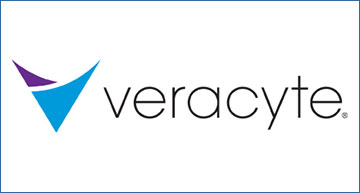
Veracyte today announced that findings demonstrating the strong real-world performance of the Afirma Genomic Sequencing Classifier (GSC) were published in The Journal of Clinical Endocrinology & Metabolism (JCEM). The data, from a meta-analysis of 13 independent studies, show that the Afirma GSC can accurately rule out thyroid cancer in patients with indeterminate thyroid nodules (ITNs) and that, when the test identifies a nodule as suspicious, the patient’s risk of malignancy is consistent with, and higher than, that reported in the test’s original clinical validation (CV) study.
“The original Afirma GSC clinical validation study demonstrated that the genomic test provides reliable, accurate information to help inform important thyroid nodule diagnoses,” said Christian Nasr, M.D., division chief of Endocrinology at the University of Arizona College of Medicine and the lead author on the study. “Our analysis found that the test performs just as well – and on some measures better – in clinical practice. This is incredibly encouraging and reassuring for physicians who must determine the best clinical approach for patients with indeterminate thyroid nodules.”
Among the 1,976 patients with ITNs included in the meta-analysis, researchers found that the Afirma GSC’s real-world ability to identify benign nodules (GSC-B) with high sensitivity and high negative predictive value for thyroid cancer was similar to the CV study results (97 percent vs. 91 percent and 99 percent vs. 96 percent, respectively). Additionally, the meta-analysis data show that the Afirma test’s real-world performance surpasses that shown in the CV study when predicting the risk of malignancy in nodules labeled suspicious (GSC-S; 65 percent positive predictive value vs. 47 percent).
Researchers reported a benign call rate (BCR) of 67%, which also surpassed the validation study (54% BCR), and is consistent with the 66% BCR reported by Hu, et al. in an analysis of 50,000 consecutive Afirma tests. Finally, the authors noted that only 6% of patients in the meta-analysis with GSC-B results had surgery, suggesting that most clinicians are comfortable monitoring these patients rather than conducting potentially unnecessary surgery.
“The findings from this important post-validation analysis suggest that the Afirma GSC maintains its strong performance in real-world clinical practice, and that the results the test provides have a beneficial impact for patients – either by helping them avoid unnecessary surgeries or increasing the potential that those with suspicious nodules receive appropriate treatment in a timely manner,” said Joshua Klopper, M.D., Veracyte’s medical director for endocrinology.
Veracyte estimates that each year approximately 565,000 people undergo fine-needle aspiration (FNA) biopsy evaluation for potentially cancerous thyroid nodules and that more than 110,000 of these patients receive indeterminate results – meaning their nodules are not clearly benign or malignant based on traditional cytopathology evaluation. Historically, most of these patients were directed to diagnostic surgery, even though 70 percent to 80 percent of the time, the nodules proved to be benign. Current American Thyroid Association guidelines include molecular testing as a recommended option to achieve definitive diagnoses for nodules classified as indeterminate following FNA biopsy.
About the Afirma GSC
The Afirma Genomic Sequencing Classifier helps physicians identify patients with benign thyroid nodules among those with indeterminate FNA results, so that they may avoid unnecessary thyroid surgery. Veracyte developed the genomic test using RNA whole-transcriptome sequencing and machine learning technology to provide physicians with clinically actionable results from the same FNA biopsy used for initial cytopathology. As part of the Afirma offering, the Xpression Atlas provides genomic alteration content from the same FNA samples used in Afirma GSC testing to help physicians decide, with greater confidence, on the surgical or therapeutic approach for their patients.
Source – BusinessWire




